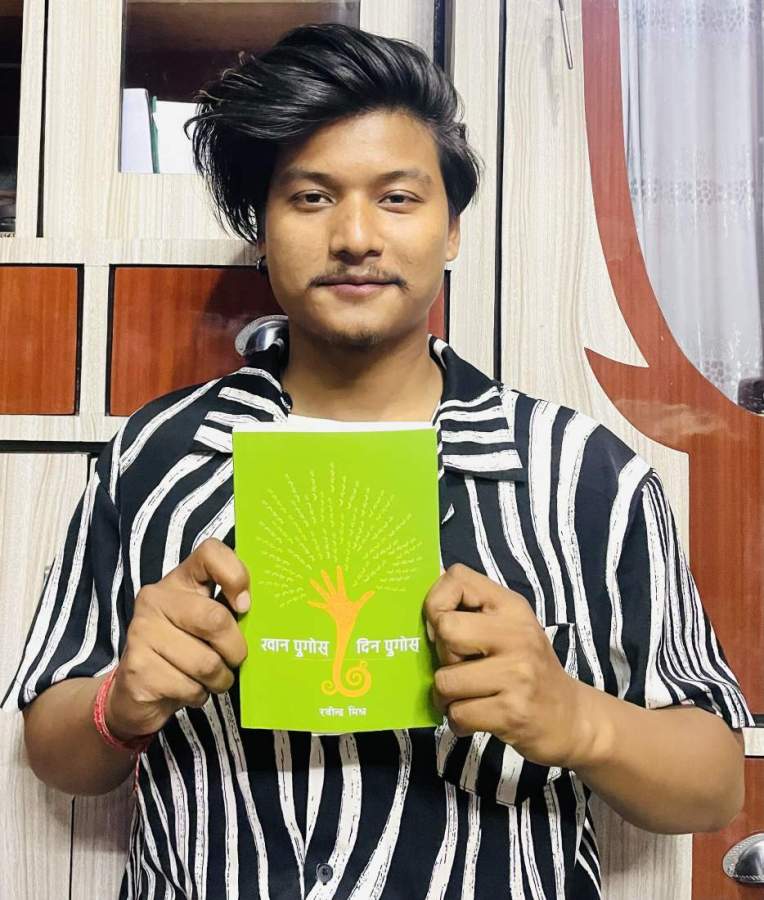

The book “Khana Pugos Dina Pugos“ by Mr. Rabindra Mishra is a compilation of his articles previously published in Kantipur Daily and Nagarik Daily. He has divided the book into two categories i.e. “Philanthropy” and “Politics”. After reading the book thoroughly, I realized I should have read it in the good old days’ time. In fact, the content included in the article is truly remarkable, forward-thinking and practical. I believe the book itself serves a philanthropic purpose. It contains 53 articles and the more you read, the more captivating it becomes. Honestly speaking, readers will undoubtedly gain new insights from it, as Mr. Mishra has expressed his thoughts and ideas in profound depth. In each article, he logically presents his arguments on various issues, and I found his reasoning completely convincing.
In the article “Uddhogee-Byaparilai Khulla Patra”, Mr. Mishra argues that while certain professions may be service-oriented, they are not inherently acts of service. For instance, although the medical profession is service-oriented, a doctor who charges patients cannot claim, “I have served society as a doctor.” For it to be considered a service, there must be an element of sacrifice and welfare in it. His logic in the article is not only relevant but also undeniably true. Similarly, he expresses concern over people’s growing fascination towards negativity rather than positivity, which he addresses in his article “Ekpalta Garera Ta Herau”. He observes that newspapers, TV and radio are more inclined to cover topics of decay, damage and disaster rather than positive, welfare-driven matters. He further argues that our mentality and psychology have degenerated, causing us to focus on negative news while overlooking positive elements.
Also, In the article “Purba Raajaalai Khulla Patra”, Mr. Mishra courageously appeals to ex-King Gyanendra Shah to donate his wealth for philanthropic purposes. He also discusses the importance of responsible journalism in the article “Bhangere Mutu”, emphasizing that if everything in society is in order, there is no need for fearmongering. He advises media outlets to avoid publishing unrealistic advertisements for small financial gains. As a generous and compassionate individual, Mr. Mishra shares an emotional moment as well in the article “Jee Bhanda Jhareko Aashu“, in which he recounts a conversation between his friend and a driver named Krishna Bahadur. His friend treated the driver with respect, regardless of status, name or fame, a quality Mishra deeply admires. He emphasizes that we must treat everyone with dignity, irrespective of their social standing, race, or status, as this is the essence of humanity.
As a matter of fact, Mishra’s expertise in analyzing and interpreting various topics is evident throughout the book. For instance, he delves into the true meaning of “Celebrity” in a way that extends beyond dictionary definitions. While the dictionary defines a celebrity as a famous or renowned person, Mishra argues that true celebrities are those who go beyond their professional sphere and use their talents to bring about meaningful societal change. In the article “Kahalilagdo Tathya ra Hamro Aadambar”, he highlights the harsh reality of the condition of community and government schools in Nepal and further advocates the construction of women-friendly toilets and libraries. His concern for the future of students is crystal clear, and in the article “Chhora Chhorilai Nepal Farkau”, he advises parents to bring their children back to Nepal. Mr. Mishra mentions in the preface that he brought his own children back to Nepal at the ages of 11 and 8 although both were born in London.
Towards the end, Mishra suggests that people should avoid entering politics unless they have sufficient financial resources and education, as those who engage in full-time politics without an income source cannot remain honest, even if they desire to. This reveals the depth of his concern for the nation’s well-being. There is a lot of content over here but only a few which I liked the most are paraphrased here. As a neutral observer, I find this book to be a well-rounded compilation of crucial issues. Therefore, I request and highly recommend everyone to read this book once in that it encourages philanthropy, skill development and awareness among all age groups from children to the elderly.
Keshav Gharti Magar
Comment